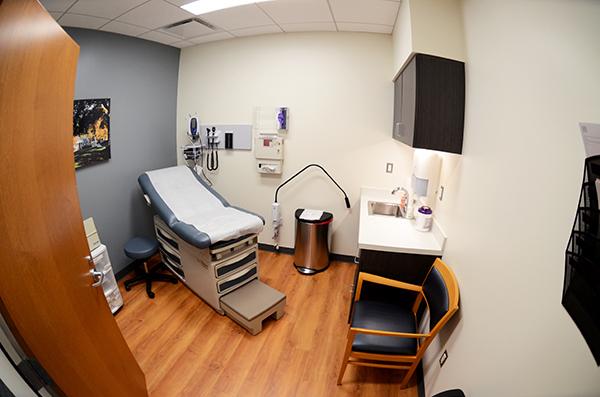The University’s Colonial Health Center opened last week, but now the focus has shifted to how students and officials will get GW’s newest counseling program – which will likely be housed in the space – off the ground.
Over the next several months, a group of students and officials will decide where they will house a peer-support hotline, how much funding the program will receive, how to train student volunteers and how to market the resource.
Student Association President Nick Gumas, who has acted as the hotline’s advocate since he floated the idea during his campaign last year, said GW will look to launch a pilot program with up to six student volunteers trained to man phones.
“My priority is just making sure this happens,” Gumas said.
He said during that phase, two students would likely work at a time. There’s no timeline for the pilot yet, but he said officials plan to have the details ironed out by the end of the semester.
Gumas said he ideally would like the program to be housed within the health center so the counseling staff can be directly available to hotline operators. Officials already know that they will recruit psychology and public health majors, he added.
“I’m not worried about recruiting because we go to such a large school and we’re a very community service oriented student body and, of course, we have majors and schools that parallel with this type of work,” Gumas said.
He’s now also pressed to lay down as much of the program’s foundation as possible, since he will transition out of his post this spring and hand the program’s completion over to his successor.
He said he envisions the hotline as a resource that students can use anonymously to vent about a bad test grade, roommate conflicts or troubles finding other mental health resources on campus.
Gumas said the volunteer-based program’s main cost will be expenses associated with a staff supervisor. Gumas said either a current employee will be asked to split his or her time overseeing the program among other duties or a new clinician will be hired.
Nance Roy, medical director of the Jed Foundation, is now evaluating GW’s campus as part of a nationwide survey her organization is conducting with the Clinton Foundation. GW’s first grade is still pending, but Roy said she predicts it will score well with the health center’s move and plans for a peer-support program.
“Frankly, the research shows over 90 percent of the time students say if students want to talk about a mental health issue, they go to a peer,” Roy said. “If a school wants to be successful providing a mental health service, a peer-support program is key.”
As University and student leaders prepare to piece together the program, Roy said the top priority a school can set during this time is continuity. Since students typically are only in college for four years, she said the largest investment should be made in making sure volunteers are trained consistently and are of a similar caliber every year.
University Counseling Center Director Silvio Weisner said to help students settle into the new space, no changes to mental health services will be made for now.
“During this important transition, it is important to maintain stability and continuity, especially given that this major move has occurred in the middle of an academic year,” Weisner said.
Training for volunteer programs can range from one eight-hour session to a five-day program to a course for credit. Students will go through “gatekeeper training,” in which volunteers learn how to identify signs that a student needs professional help, Roy said.
“For students, that’s the scariest part. You don’t want to miss anything. You don’t have a visual and you’re not seeing a person on a regular weekly basis for psychotherapy, so you don’t necessarily know is this their baseline or is there something wrong,” Roy said. “Being able to think quickly and rely on your training, whether it’s a little cheat sheet next to your phone, I think those are some of the challenges.”
Darcy Gruttadaro, the director of the Child & Adolescent Action Center at the National Alliance on Mental Illness, said GW’s move to centralize health resources is in line with national trends to eliminate not just social stigmas surrounding mental health care, but to break barriers within the medical community.
“Mental health care has historically been seen as the ugly stepchild in the field, but mental health care is part of your overall health care,” Gruttadaro said. “So the idea that mental health in one setting and all other [medical care] in another is antiquated and not in line with the idea of looking at the whole person.”








